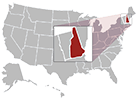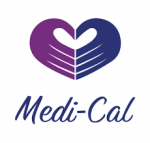
Patient access representatives are front-office healthcare employees who deliver essential and routine services across various medical settings, including specialty clinics, medical offices, hospitals, surgery centers, and numerous other facilities.
Beginning your career in a patient access role offers numerous benefits, including exceptional job growth and a respectable salary, especially for entry-level work.
Keep reading to learn more about how to become a patient access representative in New Hampshire!
Page Navigation
- Steps to Become a Patient Access Representative in New Hampshire
- Schools in New Hampshire
- Patient Access Representative Schools in New Hampshire – Summary Table
- Salary
- Frequently Asked Questions
- What are the typical duties of a patient access representative in New Hampshire?
- What core skills must a successful patient access representative possess in New Hampshire?
- What challenges does a patient access representative in New Hampshire face?
- What primary consideration should a potential candidate consider before becoming a patient access representative in New Hampshire?
Steps to Become a Patient Access Representative in New Hampshire
Six primary steps exist to becoming a patient access representative in New Hampshire, including the following:
Step One: Complete a High School Degree
Employers require postsecondary education to enter the field, so you must hold at least a high school degree to be accepted into any program.
However, for those who know they want to become a patient access representative, applying during your senior year can help get you into a program shortly after graduation.
Step Two: Complete the Patient Access Program
Once accepted into a school, you must complete the patient access program to be considered for employment.
Program degree awards range from a certificate to an associate degree, which varies in time commitment and cost.
However, the more education you have, the more prospective employers you can attract.
Postsecondary education also prepares you for certification exams, further boosting your resume.
Step Three: Gain Experience
Many patient access roles require one-to-two years of work within the field.
As a result, many students opt for internships during their training program or working part-time within the function or in a medical facility setting.
This firsthand experience is a critical aspect of the learning process and can help you uncover skills that must be improved or identify areas of interest for the future.
Step Four: Sharpen Relevant Skills
While the classroom and firsthand experience are critical aspects of success, you must also hold specific skills that cannot be learned and are only gained through practice and experience.
These include the following:
- Dedication to learning
- Empathy and compassion
- Excellent communication skills
- Flexibility
- Strong attention to detail
The best patient access representatives have a combination of interpersonal skills and formal education.
Step Five: Consider Registrations, Certifications, and Licenses
While these advanced achievements are not required in New Hampshire, earning certifications, like the CHAA (Certified Healthcare Admissions Associate) certificate, will make you more appealing to the employer and provide additional skills to refine your craft.
One of the best aspects of the healthcare industry is that there are always new challenges and new skills to learn.
Step Six: Start Your Career
Once you’ve completed all training and other employment requirements, you’re ready to start your new career as a patient access representative at a medical clinic, physicians’ office, hospital, or different location.
A patient access career requires minimal upfront financial and time investment but offers fantastic rewards.
Schools in New Hampshire
Medi-Cali
This online patient access representative training program only costs $349 and comprises 25 courses with a final examination to become a Certified Patient Access Specialist.
The course covers any front office topics like HIPAA, medical necessity basics, patient liability determination, patient payment basics, assessing patient financial status, Medicare as a secondary payer, and service authorization basics.
Penn Foster
Penn Foster is another online patient access representative program that can be completed in over a year and awards you a diploma.
The program prepares students to conduct administrative tasks relevant to working in any healthcare setting, as well as public health clinics and insurance companies.
The curriculum is sequenced to ensure learner success and help prepare students for industry certification exams like CEHRS and CMAA.
Classes include electronic medical records, health insurance and medical billing, medical office procedures, body systems and medical terminology 1 and 2, pharmacology and pathology, confidentiality, ethics, and law in Allied Health.
Patient Access Representative Schools in New Hampshire – Summary Table
Top 2 Schools in New Hampshire
| School Name | Address |
|---|---|
| Medi-Cali | 1501 Capitol Avenue, MS 4604 Sacramento, CA 95814, USA |
| penn foster | 14300 N. Northsight Blvd. Suite 125. Scottsdale, AZ 85260, USA |
Salary
The average U.S. annual patient access representative salary is around $50,000, with pay ranging from $45,800 to $56,300.
In New Hampshire, the average salary is slightly higher at around $51,000, with compensation ranging from $46,400 to $57,000.
Annual Salary Range:Average Salary of Patient Access Representatives in New Hampshire
| City Name | Salary |
|---|---|
| Manchester | $51,701 |
| Nashua | $54,624 |
| Concord | $51,711 |
| Derry | $53,103 |
| Rochester | $51,741 |
| Salem | $53,817 |
| Dover | $51,953 |
| Merrimack | $54,624 |
| Londonderry | $54,624 |
| Portsmouth | $51,953 |
Regional Salary in New Hampshire
| Region | Employed | Avg. Annual Salary | Avg. Hourly Pay | Top 10% Annual Salary | Bottom 10% Annual Salary |
|---|---|---|---|---|---|
| Dover-Durham, NH-ME | 50 | $43,580 | $20.95 | $59,700 | $33,030 |
| Manchester, NH | 250 | $51,680 | $24.85 | $67,100 | $36,200 |
| Portsmouth, NH-ME | 110 | $55,130 | $26.5 | $69,040 | $39,330 |
* Employment conditions in your area may vary.
Frequently Asked Questions
What are the typical duties of a patient access representative in New Hampshire?
Patient access representatives’ responsibilities range from assisting clients to administrative work.
More specifically, since patient access representatives are client-facing, they must deliver impeccable service while conducting intake interviews, managing current patient concerns, and escorting patients to required locations within the medical facility.
Also, patient access representatives must input patient information into the medical database.
What core skills must a successful patient access representative possess in New Hampshire?
Employers review patient access representative resumes for proof of multitasking capabilities, close attention to detail, organizational skills, basic computers and Microsoft Office skills, and a positive and professional demeanor.
Potential candidates must also have exceptional interpersonal, verbal, and written communication skills since they regularly interact with many medical professionals and patients.
What challenges does a patient access representative in New Hampshire face?
Most patient access functions are considered front-end work, which means the data entered into the system impacts all downstream workflows.
Therefore, many challenges revolve around the information they receive and how it’s input into the system.
For instance, if a patient enters the medical building incapacitated, staff could struggle with retrieving the most updated registration information.
In addition, with medical billing becoming more complicated, explaining the complexity to sick or injured patients can take time and effort.
Furthermore, staff educates patients on internal processes, which can cause some patients to be disgruntled.
What primary consideration should a potential candidate consider before becoming a patient access representative in New Hampshire?
Balancing satisfying the clinical teams and the patient is difficult.
Patient access representatives’ work is influenced by various situations, most of which are out of control.
Therefore, it’s critical to accept the situations you cannot change and move on.




